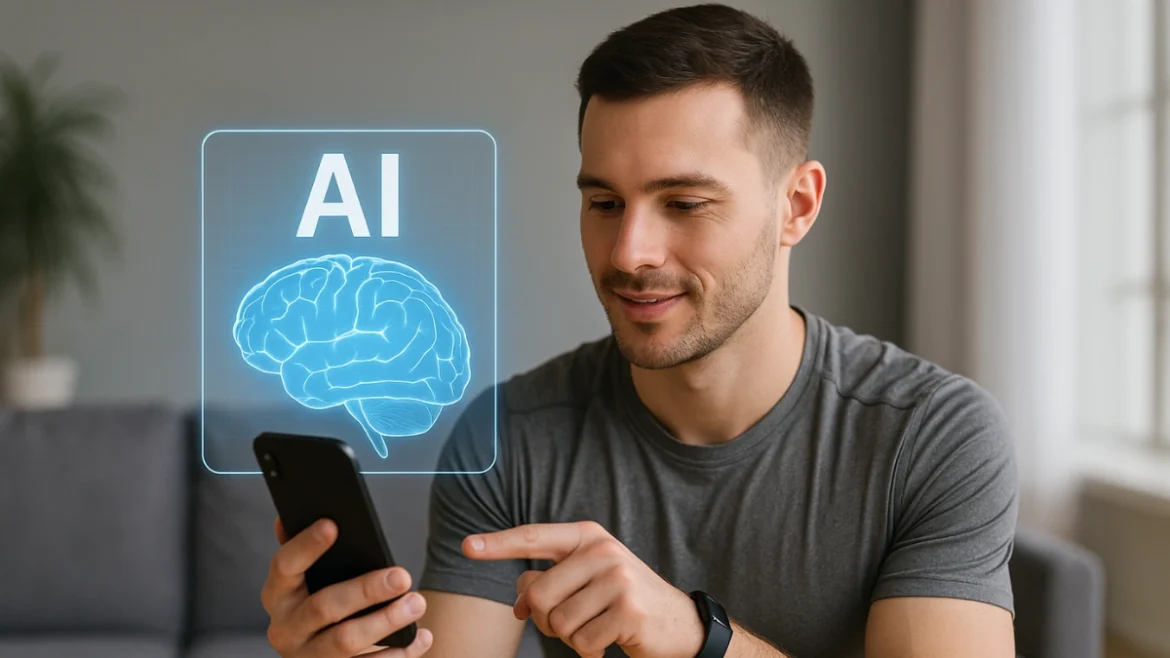From diet tracking to sleep coaching, AI is quietly becoming America’s new health companion. Here’s how millions are using it to optimize wellness in 2025.
The New Wave of Health Hacking
AI has officially entered the wellness world — and it’s not just fitness apps anymore.
A new survey revealed that more than one in three Americans now use artificial intelligence to manage their health — from tracking sleep patterns to generating personalized diet plans.
What started as a niche tool for athletes and biohackers has now gone mainstream. For many, AI is becoming the new personal health coach — available 24/7, always learning, and constantly improving.
How AI Is Changing the Way We Stay Healthy
The U.S. wellness scene is shifting fast. Here are the top ways Americans are already using AI to optimize their daily health routines:
1. Personalized Nutrition & Diet Planning
AI-powered nutrition platforms analyze dietary preferences, body data, and even DNA insights to create customized meal plans. Instead of guessing what to eat, users now follow data-driven guidance designed for their metabolism.
2. Sleep & Recovery Coaching
Smart rings, watches, and sensors now feed sleep data into AI engines that recommend bedtime schedules, light exposure patterns, and recovery timing. Many men report better rest after following AI sleep prompts than after months of trial and error.
3. Stress Tracking & Mood Support
AI health assistants can now detect mood patterns using voice or wearable data. They offer stress-reducing tips, mindfulness reminders, and even breathing exercises tailored to your physiological state in real time.
4. Early Warning Systems
Some users rely on AI to flag health red flags before they become problems — such as abnormal heart rate patterns, blood sugar fluctuations, or recovery drops. It’s like having a personal health analyst constantly watching over your metrics.
Why Men Are Leading the AI Health Trend
Men’s wellness has traditionally focused on fitness and performance, but AI is expanding that scope.
Men now use AI tools not just for workouts — but for stress control, sleep, focus, and longevity.
Biohackers and entrepreneurs are driving this adoption, using AI dashboards that blend physical, cognitive, and emotional data into one live “performance score.”
It’s not just about looking fit anymore — it’s about feeling optimized.
The Benefits Are Real — But So Are the Limits
AI can help personalize your health routine in powerful ways, but it’s not a doctor.
Many experts caution that while AI can analyze patterns, it still lacks full context — emotional, social, and biological nuance.
Still, its potential is undeniable: early studies show people using AI-based health systems make more consistent lifestyle improvements than those using standard tracking apps.
The takeaway? Use AI as a guide, not a replacement for human expertise.
What’s Next: Smarter, Simpler, More Human
In 2025, expect AI health tools to get more seamless and natural — talking like a coach, not a machine.
Voice-based assistants, adaptive wearables, and integrated nutrition data will make personalized health as easy as asking a single question.
The next phase isn’t about more data — it’s about making sense of it in real time, with AI that understands your goals and helps you achieve them naturally.
For men who value focus, sleep, and longevity, that’s not just convenience — it’s evolution.
Final Thoughts
AI is changing the health game for good. Whether it’s optimizing your diet, improving recovery, or monitoring stress, it’s giving everyday Americans tools that once required a team of experts.
The difference in 2025? You no longer need to guess what your body needs — AI already knows.

